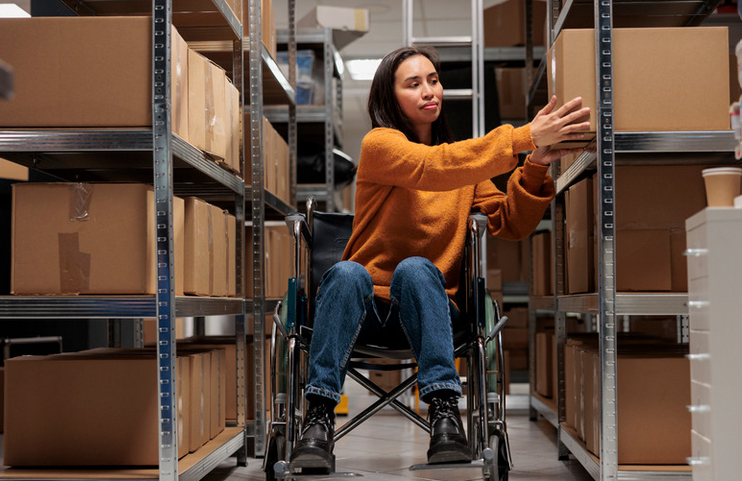In just six months, the EU-funded DiTL Project (Disabled People Inclusion and Training in Transport and Logistics) is already working to dismantle barriers and drive progress for people with disabilities in the transport and logistics sectors. By improving access to training and employment opportunities, DiTL addresses the systemic underrepresentation of disabled professionals in these critical industries.
Inclusive employment is not only a human right—it is also a powerful solution to growing skills shortages across Europe.
.
Project Goals
The DiTL Project is a three-year initiative focused on making the transport and logistics sectors more inclusive for people with disabilities. To achieve this, the project is developing policy recommendations to help national and transnational regulations, as well as vocational training frameworks, become more inclusive and disability-aware. DiTL is also creating a practical toolbox outlining compensation measures tailored to specific disabilities and job roles, enabling employers and trainers to implement effective support strategies. In addition, an accessible e-learning pathway is being developed for career advisors who support disabled individuals on their professional journey. Finally, the project is running awareness-raising campaigns and training activities across partner countries, helping stakeholders challenge bias, adopt inclusive practices, and embrace diversity in the workplace.
.
Inclusion & Training in Action — Beyond the EU
To highlight both the potential and the current gap in Europe, here are inspiring examples of inclusive practices implemented outside the EU:
.
Employing Deaf Order Selectors (UK)
A UK footwear manufacturer successfully employs deaf workers as order selectors in its warehouse. Minimal accommodations—such as visual safety alerts—make it possible for them to perform tasks effectively and safely.
(Source: exclusive.multibriefs.com)
.
Adaptive Lorry Drivers with Mobility Challenges (UK)
In the UK, drivers with physical disabilities operate HGVs using adaptive technologies like hand controls and customized cab layouts, helping address the sector’s driver shortage.
(Source: freshlogistics.co.uk)
.
Truck Drivers Using Leg Braces (USA)
On a U.S. trucking forum, a driver with leg braces shares how modified tarping methods and routine adjustments allow them to safely perform all tasks, proving that physical limitations need not be career barriers.
(Source: truckingtruth.com)
.
Experienced U.S. Drivers with Disabilities
According to Women in Trucking, some of the most reliable and experienced truck drivers in the U.S. are living with disabilities. Technological adaptations like ergonomic seating and automated loading have helped them sustain long, successful careers.
(Source: womenintrucking.org)
.
Veterans with Disabilities Entering Commercial Driving (USA)
Military.com highlights how U.S. veterans with service-related injuries use reasonable accommodations (as defined under the ADA) to transition into trucking careers—bringing valuable discipline and experience to the sector.
(Source: military.com)
.
The Opportunity for Europe
These international success stories make one thing clear: inclusive employment in transport and logistics is possible—and powerful. Yet, the EU still lags behind in adopting such practices at scale.
DiTL is determined to change that.
By equipping employers, advisors, and policymakers with the tools, training, and strategies they need, we are building a more inclusive future for European transport and logistics—one that embraces talent regardless of ability.

